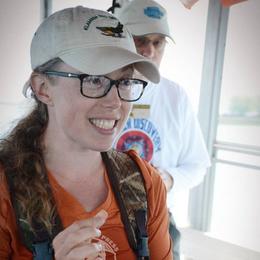Osprey are magnificent fish-hunting raptors with striking brown and white plumage. These large birds are seen along shallow fish-filled waters of Michigan, including our rivers, lakes, reservoirs, and marshes. But this wasn’t always the case!
Osprey were severely impacted by the use of the pesticide DDT, and were listed as a threatened species in Michigan after their population declined precipitously in the 1960’s. Small birds, fish, and mammals accumulated DDT within their bodies, which poisoned the predators that ate them. DDT was especially harmful to birds because it caused eggshell-thinning, which resulted in weak eggs that broke during incubation. DDT was banned nation-wide in 1972.
Thanks to the hard work and dedication of MI Birds partners, Michigan Department of Natural Resources, the Detroit Zoological Society, and friends at Huron Clinton Metropark Authority, the Osprey was successfully re-introduced to southern MI and removed from the threatened species list in 2009!
While this species now boasts over 60 known nest locations throughout the southern part of the Lower Peninsula, it is still listed as a state species of special concern. It is incredibly important that Osprey continue to be monitored closely state-wide. Michigan Osprey has monitored nests in several areas of southeast Michigan, but MI DNR and Detroit Zoo are hoping to expand this monitoring effort throughout the Lower Peninsula with the launch of the Adopt-A-Nest monitoring program!
Volunteer community scientists, like you, can adopt-a-nest of one of these beautiful predatory birds for the summer! Participation in this program requires little effort: All ages and experience levels are welcome! A minimum commitment of three 30-minute nest visits between the end of March and early July is all it takes to determine 1) if there is a nesting attempt, 2) if birds are actively nesting, and 3) if there are any chicks in the nest. You can visit your nest more often if you’d like! Binoculars are adequate for most observations, but a spotting scope is useful to determine the number of chicks. Most nests are located on cell towers and are easily viewable from public roads.
A one-hour training session will be offered at the Detroit Zoo for southeast Michigan participants, and additional training will be offered in other areas, as needed.
If you’re interested in adopting an Osprey nest, please fill out this sign-up form.
If you have found any new Osprey nests in your community, please reach out to Tom Schneider, Detroit Zoo, with the nest location, the date you observed the nest, and the recent Osprey activity you observed.
MI Birds is a public outreach and education program created by Audubon Great Lakes and Michigan Department of Natural Resources. Birders and hunters share similar conservation values, but rarely cross paths. MI Birds aims to bridge the divide, and deepen all Michiganders engagement in the understanding, care, and stewardship of public lands that are important for birds and local communities.






